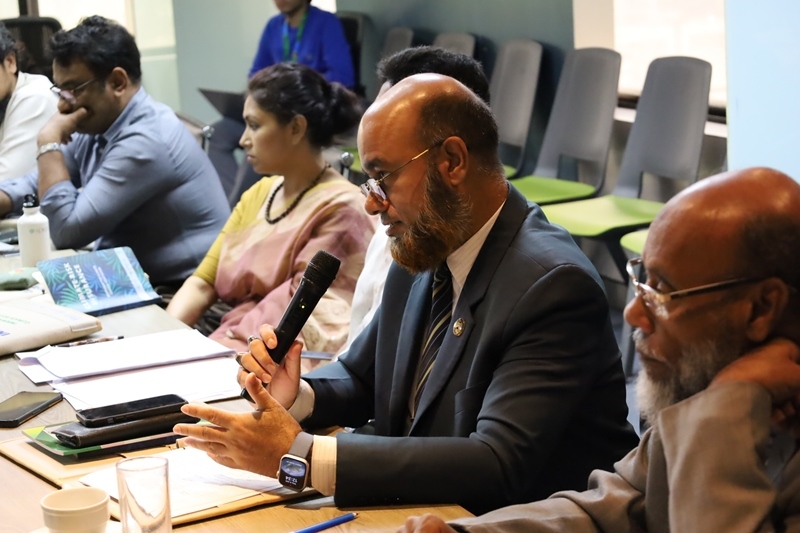- Referendum Sees 4.82cr ‘Yes’ Votes, Turnout 60.84% |
- EC Issues Gazette for 297 Newly Elected MPs |
- 9-year-old boy beaten to death over betel nut theft in M’singh |
- BNP fast-tracks cabinet plans after resounding victory |
Form National Climate Risk Insurance Technical Group: Oxfam

A dialogue organised by OXFAM Bangladesh on climate risk insurance on Thursday.
6 June 2024, Dhaka: Oxfam in Bangladesh urged government to take necessary steps to establish a Climate-Risk Insurance (CRI) technical working group for farmers involving relevant ministries, departments, private sector and service provers. Also proposed to regulate and operate climate insurance initiatives to be in favour and reduction of 15% VAT, claim payment within 30 days for affected farmers.
This discussion arose during a meeting on Thursday afternoon in Dhaka, organized by Oxfam in Bangladesh. The event, titled "Navigating Challenges: A Series of Dialogues on Climate Risk Insurance in Bangladesh" included the Insurance Development and Regulatory Authority (IDRA), the Financial Institution Division (FID), and the Department of Agricultural Extension (DAE).
Before the discussion, Oxfam and the World Food Programme (WFP) delivered keynote presentations, showcasing their collaborative work in Kurigram as a pilot project, ensuring Climate Risk Insurance (CRI) among farmers. Although the premium is currently provided by international organizations, CRI can be introduced nationwide to protect farmers and ensure food security.
During this discussion, Dr. Md. Shah Kamal Khan, Project Director, DAE said, Bangladeshi farmers have made remarkable progress in achieving food security, but climate change is now causing significant challenges, especially in disaster-prone areas. Climate risk insurance could help reduce these risks and support anticipatory action. However, there's a concern that with insurance protection, farmers might become less proactive in seeking knowledge and information, potentially undermining the self-sufficiency we've built over the years, leading to a negative impact.’
Zakir Khan, Executive Director of Change Initiative said, ‘The governments’ fiscal ability towards climate risk insurance is reducing we need to be more innovative and more adaptable to new and modern methods to work. We must find new ways to tap in finances from zakat, people tend to avoid taxes, but they don’t avoid zakat. We must take a holistic approach towards farmers. We must redirect finances and bundle it to farmers.’
Participants also discussed on collaborative approach involving all stakeholders to enhance climate risk insurance mechanisms, ensuring that farmers are better protected and prepared for the challenges posed by climate change. Public-private partnerships were emphasized as essential for effective implementation and dissemination, utilizing proper sources of information.
Despite the progress made in other areas, the expansion of climate risk insurance over the last decade has been limited, and there is currently no comprehensive guideline for climate risk insurance. The speakers called for the establishment of insurance rules and a legal framework to ensure better implementation and requested the Insurance Development and Regulatory Authority (IDRA) to take the lead on this initiative.
Navigating Challenges: A Series of Dialogues on Climate Risk Insurance in Bangladesh; is a collaboration three discussion meeting, where this is was the last one. Before that, Oxfam discussed under the same agenda with Disaster Management Department, Insurance Development and Regulatory Authority, Bangladesh Meteorological Department and insurance companies and development organizations. – Press release

